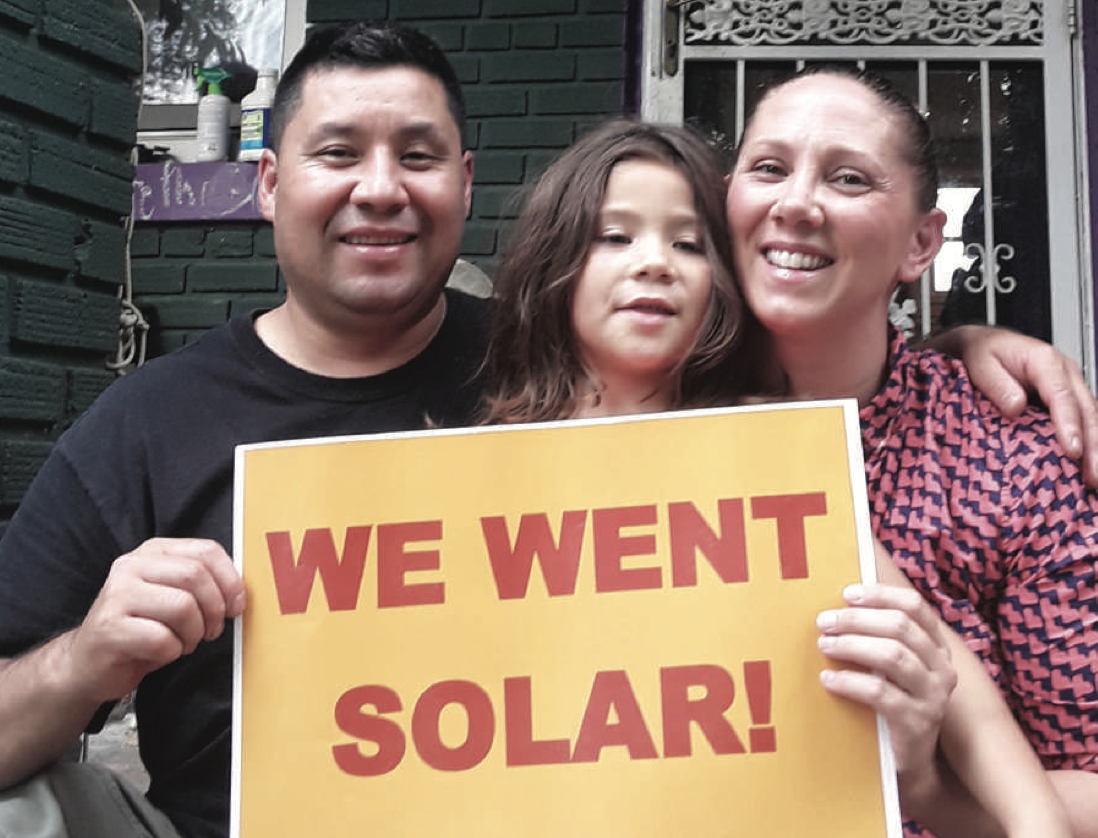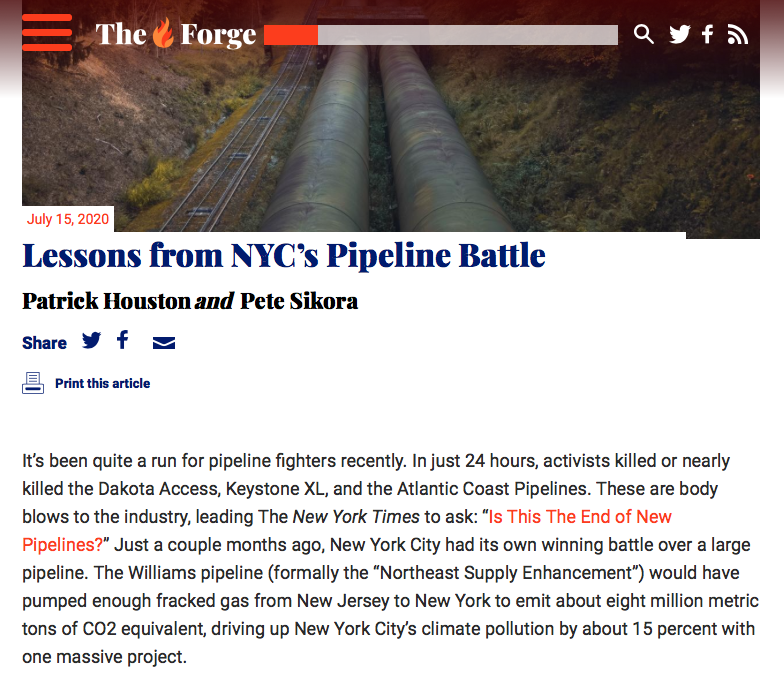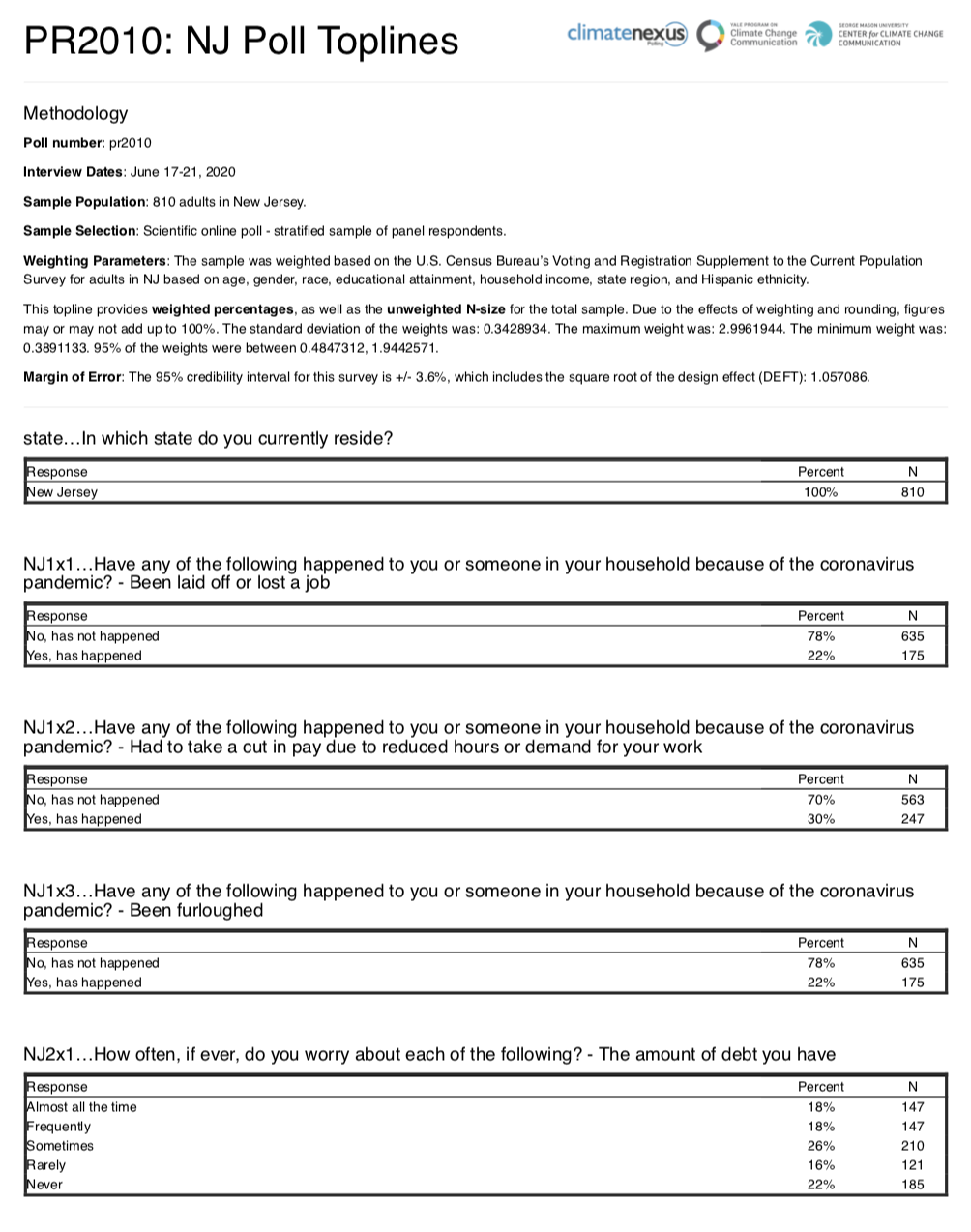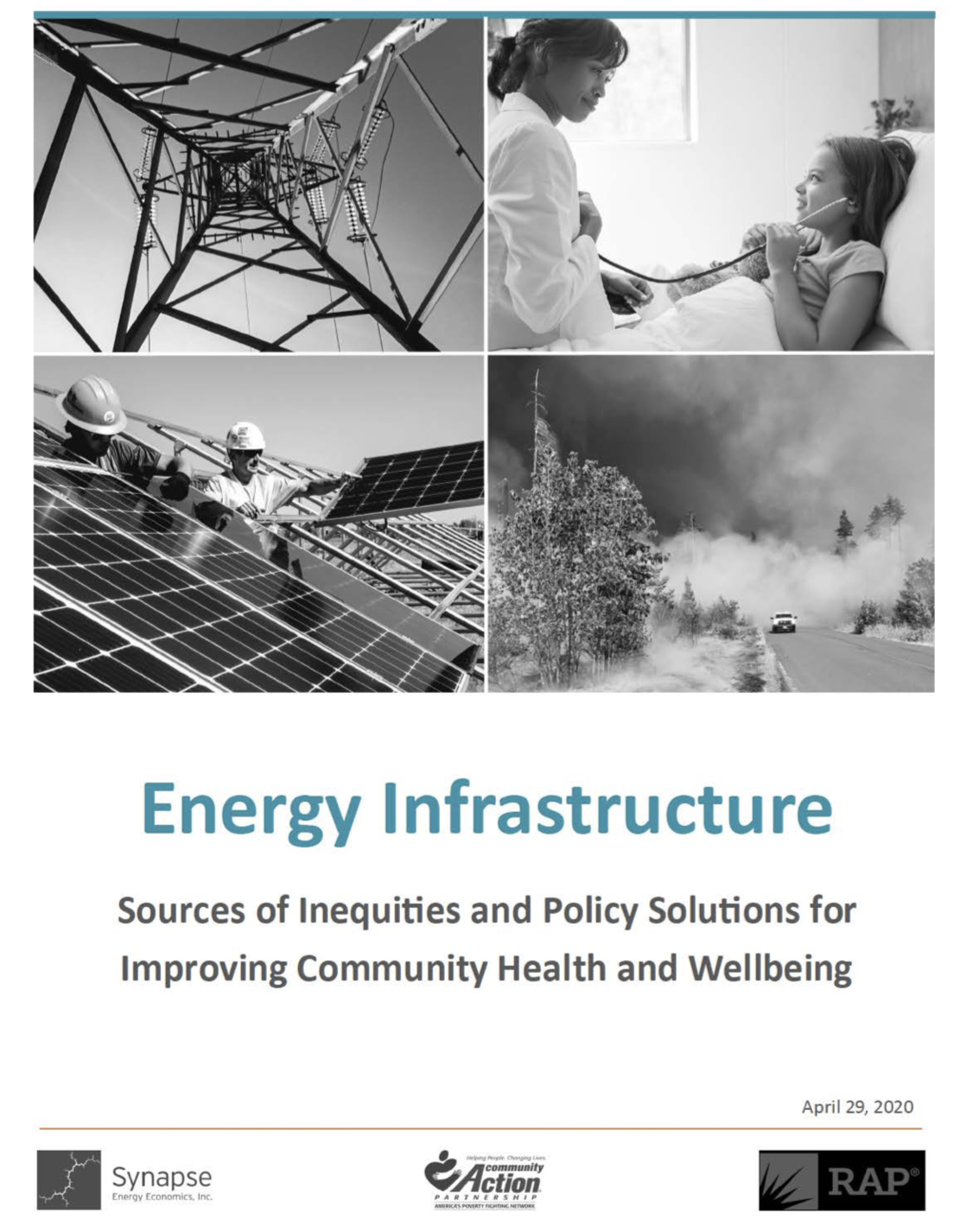Resources
Search below for resources covering the intersection of climate engagement, social science and data analytics.
RESULTS
Solar United Neighbors designed and implemented a low- and moderate-income solar program that empowers D.C. residents to benefit from rooftop and commmunity solar. Lessons learned from the work necessary to build and run an effective program include: Start small, then scale up; Build trust in the community; Leverage key partnerships; Expand customer base through referrals; Work to simplify the process; and Be flexible and creative in the communications process.
Lessons from NYC’s Williams Pipeline battle
A multi-racial coalition focused on organizing and escalating tactics helped defeat the Williams Pipeline: The Stop the Williams Pipeline coalition won by building, organizing, and activating a large and intense base of opposition targeted at the key decision-maker, Governor Andrew Cuomo.
Poll: 76% of New Jerseyans Support Using Renewable Energy to Reduce Electric Bills for Low-Income Families
At least 7 in 10 New Jerseyans support each of the six key components of the Clean Energy Equity Act, a bill that aims to help low-income New Jersey families benefit from solar, storage and energy efficiency.
Energy Infrastructure: Sources of Inequities and Policy Solutions for Improving Community Health and Wellbeing
In a new report produced with the support of the Robert Wood Johnson Foundation, Synapse Energy Economics, RAP and Community Action Partnership take an in-depth look at the disparate impacts of electric and natural gas infrastructure on economic, social, and health outcomes — and consider how to ensure that a clean-energy future is a more equitable future.
Resilient Clean Energy for California
This report documents the widespread impacts of power shutoffs in California and the drawbacks of conventional solutions. Vote Solar documents the risks of relying on dirty BUGs, including deaths from carbon monoxide poisoning, hazardous air pollution, and, ironically, fire hazards.
Webinar: Winning By A Landslide: How we won the Portland Clean Energy Fund (PCEF)
How did the alliance behind the Portland Clean Energy Fund (PCEF) move a visionary idea from concept to groundbreaking reality? In this webinar, the Climate Advocacy Lab was joined in conversation with members of the PCEF Steering Committee for an "under the hood" look at the campaign's insights, challenges, and lessons learned –– also captured in a new, interview-based report that captures the "anatomy" of the campaign. This campaign secured a landslide ballot measure victory in Portland in November 2018, establishing a multi-million dollar municipal fund that will address climate, economic, and racial justice by providing funding for renewable energy projects, job training and apprenticeship programs, and regenerative agriculture.
A Template for Change: The Portland Clean Energy Fund as a Local Model for a Green New Deal
This report details the anatomy of the campaign and strategy that achieved the groundbreaking Portland Clean Energy Fund (PCEF), a multi-million dollar fund that addresses climate, economic, and racial justice in Portland, OR.
Solar with Justice
Under-resourced communities face a disproportionate share of societal burdens and lack access to many of the benefits other communities enjoy. Participation in the solar economy can help ease these burdens and provide low-and middle-income households with economic relief.
Poll: Green New Deal for Public Housing Can Stand Up to Scrutiny
This polling tests Green New Deal (GND) for Public Housing Act legislation in an electoral environment, with Republican arguments against it. Polling includes questions probing the support of voters for a policy "if it would...":
And The People Shall Lead: Centralizing Frontline Community Leadership in the Movement Towards a Sustainable Planet
Summarizes lessons learned and challenges to collaboration between traditional large environmental organizations and frontline or people of color led organizations. Draws on the conversation at the “Engaging Non-Traditional Groups in Coal Plant Retirement” session at the National Coal Plant Retirement Conference in Denver and co-facilitated by the Little Village Environmental Organization, American Lung Association, Sierra Club, and the National Association for the Advancement of Colored People (NAACP).
Pagination
- Previous page
- Page 3



